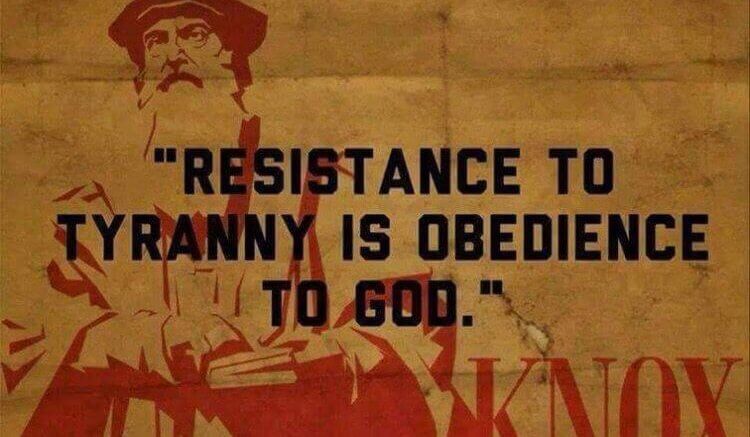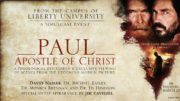Are Evangelicals needing some triage?
By J. Jeff Toler, for Shenandoah Christian Alliance
If the Church is not to engage in political leadership, then who should? Name another worldview superior to the Christian’s biblical worldview.
Some of our readers may not be fully informed of the term, “Big Eva.” If not, please don’t think you’re alone. Like so many words and phrases that have entered into the American English lexicon, it’s fairly new. In truth, it’s more of a pejorative term; generally reserved for those who may be working through their sanctification in a way that might have once seemed imperious, or dictatorial a mere generation ago. Being humble, still considered a virtue, has slipped from the top tier of virtues to be replaced by… well, political correctness.
Big Eva refers, broadly, to the evangelical church—not the ecclesia necessarily, but its hierarchy, the leaders of evangelicalism in the 21st century. The term has been credited to Carl Trueman.
Allie Beth Stuckey says,
“Big Eva represents the corporate bureaucratic part of evangelicalism, less as a part of the protestant faith, and not even the political label evangelicalism, but kind of like the institution; the people at the top. Big Eva has typically [some] characteristics of people who are just like establishment evangelicals. That’s one way to say [they are] typically anti-trump, anti-abortion, pro-biblical sex and gender, pro-critical race theory, and pro-social justice.” (Allie Beth Stuckey, My Response to John Piper, Tim Keller & Big Eva | Ep 508, begin: 3:53)
Stuckey identifies Big Eva notables like Russell Moore, who is the former head of the Ethics and Religious Liberty Commission, (that’s the policy arm of the Southern Baptist Convention) pastor (and TGC co-founder) Tim Keller, author/speaker Beth Moore, and others who “kind of [fit] in that crowd, and are part of Big Eva.” There are others within the Big Eva tent, but these standouts (and others) have made their positions on the most controversial issues pretty clear in the run-up to the 2020 election and well beyond.
If you are wondering why this is important, it is because we are approaching a point where division is becoming markedly evident within the Southern Baptist Convention. Couple this with increasing criticism of The Gospel Coalition (TGC), and Together for the Gospel (T4G). Many local churches struggle with discord for a number of reasons. One being the notion that any sermonizing that speaks directly to the patently obvious issues in our culture—both in, and outside the church—is largely to be avoided. But why? It ought to be accepted as fact—though often isn’t—that the contemporary culture is an essential mission field in which the Church must participate, and moreover, demonstrate strong moral and biblical stands on the topics that are increasingly dividing us. Why?
Because the issues that divide both society at large from the Church, are often the same issues that divide the Church within the Church.
“Politics as a science or an art, is a subject of vast extent and importance.” Webster’s American Dictionary of the English Language (1828)
Today, secular elites dominate and control both politics and political mandates. We seem to consider them the “Ruling Class.” How is it that Americans are now comfortable with that paradigm? It ought to be utterly repugnant with anyone who can think rightly. But here is the rub. Right thinking, or correct thinking, has become all but obsolete. And you may as well toss out the term, “Common Sense.” Sense hasn’t been common in more than two or three generations.
But for Big Eva, there is a lot of politicking going on. It has been so for some time. But of late, and particularly in the day of the COVID, Big Eva has taken on some of the same hubris of the ruling class politicians: apologizing for being white, calling for unity above all else, and finding their gravitas in social justice. In this regard, they come off as “fragile” in the face of other power structures and certain ideologies.
- “But he said to me, ‘My grace is sufficient for you, for my power is made perfect in weakness.’ Therefore I will boast all the more gladly of my weaknesses, so that the power of Christ may rest upon me.” (2 Corinthians 12:9 ESV)
Are cracks beginning to appear? Just recently, Christianity Today announced that T4G would no longer convene after 2022. Moreover, The Gospel Coalition has come under increasing criticism from a number of newer—and younger—reformed and evangelical voices online and in print owing to its increasing political correctness. It could well be the reason is due to a lack of strong resistance to an eroding culture.
Doug Wilson points to author, Nassim Nicholas Taleb, whose book, “Antifragile” is available on Amazon, and free as a PDF, to explain how we gain from disorder and chaos while being protected from fragilities and adverse events. Taleb writes. “Antifragility is beyond resilience or robustness. The resilient resists shocks and stays the same; the antifragile gets better.” (Compare that to Robin D’Angelo’s “White Fragility” trope that set the stage for BLM, and all the rest of the usual suspects in the summer of 2020.)
Wilson characteristically elaborates, “Fragile institutions freak out over the prospect of tumult. Sturdy institutions say “huh.” Antifragile institutions mutter, “oh boy, oh boy.” Antifragile people are in a position to count it all joy when they meet various trials. If you are fragile, if you have adopted the safety-first tenets of fragility, the scriptural exhortations that summon us to welcome adversity with steadfast faith and courage make no sense.” (emphasis added)
- “We rejoice in our sufferings, knowing that suffering produces endurance, and endurance produces character, and character produces hope, and hope does not put us to shame, because God’s love has been poured into our hearts through the Holy Spirit who has been given to us.” (Romans 5:3-5)
Resisting tyranny is not for the fragile—let alone the faint of heart—among us. Fragile stands no chance against chaos.
Be strong, be blessed.





